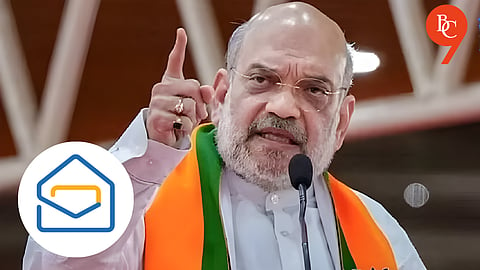

In a bold move underscoring the BJP’s push for digital self-reliance, Home Minister Amit Shah on Wednesday announced on X that he has switched his official email from Google’s Gmail to Zoho Mail, a platform developed by the fully Indian-owned Zoho Corporation.
“Hello everyone. I have switched to Zoho Mail. Kindly note the change in my email address. My new email address is amitshah.bjp@zohomail.in. For future correspondence via mail, kindly use this address,” he posted on X.
Shah's transition to a 'swadeshi' software-as-a-service (SaaS) email platform occurs during the BJP's three-month 'Har Ghar Swadeshi' initiative, which is focused on encouraging the use of products made in India.
Founded in 1996 by Sridhar Vembu, Tony Thomas, and Shailesh Kumar Davey, Zoho Corporation is an Indian multinational technology firm headquartered in Chennai, Tamil Nadu, India, with operations in nearly 80 countries.
In response to Amit Shah’s announcement on X, Zoho Corporation CEO Sridhar Vembu expressed his heartfelt gratitude, acknowledging the Home Minister’s endorsement. Sharing a reply on the platform, Vembu wrote, “Thank you Sir for the faith in us,” reflecting both pride and appreciation for the government’s support of indigenous technology solutions.
Several years back, Shah and a number of ministers from the Narendra Modi government enthusiastically joined Koo, an Indian microblogging platform designed to compete with Twitter (now X), which gave it immediate attention and prominence. However, Koo, co-founded by entrepreneurs Aprameya Radhakrishna and Mayank Bidawatka, ultimately did not meet expectations and was recently closed down due to a 'funding winter'.
Just days earlier, industrialist Anand Mahindra also took a step in support of the 'Make in India' initiative by downloading and endorsing ‘Arattai’ a homegrown messaging app developed by Zoho Corporation, led by Sridhar Vembu. Arattai is positioned as an Indian alternative to WhatsApp, and Mahindra’s move was seen as a symbolic endorsement of indigenous technology and digital self-reliance.
